This post contains affiliate links from which I may receive a small commission, at no extra cost to you. In no way does this affect my opinion or the information I provide on the product. Please read my disclaimer for more info.
You wouldn’t believe the amount of false information circulating around weight loss, diets, and nutrition. A lot of these ideas are seen as absolute facts and are believed to be true by an extraordinary number of people.
In reality, these myths have just been repeated so many times that they are seen as true facts. It’s time to debunk these weight loss myths once and for all!
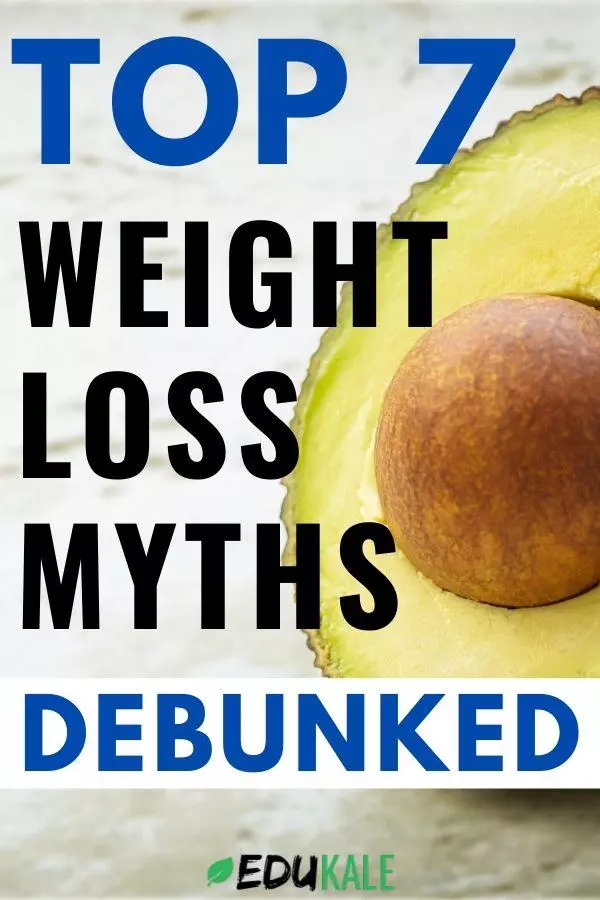
Top 7 weight loss myths debunked!
1. Carbs make you gain weight
Carbs are seen as the devil by so many people and low-carb diets are on the rise. Because of this, people are confused and are trying to cut out carbs to lose weight.
In reality, the right carbs are actually healthy and DO NOT make you gain weight. Your body needs them to function properly.
Check out this article if you want to know more about the health benefits of carbs.
2. A detox is a great way to get a fresh start
Many of us see detoxing as an easy way to reset our entire body, completely overriding all of our past indulgement. These cleanses also claim to make you lose weight fast.
Technically, the numbers on the scale could decrease. But the only thing you would actually be losing is water, not fat.
After the detox, you might even find yourself gaining weight from binging after being unhealthily restricted. A detox diet is just another crash diet: it does much more harm than good. Check out this article if you want to know more about why you don’t need to detoxify.
3. You shouldn’t eat past 6 pm
It’s commonly believed that eating past a certain time will automatically lead to storing more fat. In reality, your metabolism doesn’t slow down much at night. But people would rather go to bed starving than indulge in a healthy late-night snack.
Studies actually show that having a small snack (150 kcal) at nighttime does not appear to be harmful in any way, and may even be beneficial. Studies in children also showed no evidence that eating dinner after 8 pm led to weight gain.
However, it’s a good idea to stop eating around three hours before going to bed. Waiting less might lead to uncomfortable digestion. Waiting more might make you want to binge on calorie-dense processed foods.
For some adults, studies showed that eating in the evening predisposed them to weight gain, but only because these meals were associated with greater calorie consumption.
Basically, you should eat a balanced dinner whenever it works for you, and have a light, healthy snack if you’re hungry before bed. But eating after 6 or 7 isn’t automatically going to make you gain weight.
4. Fat makes you fat
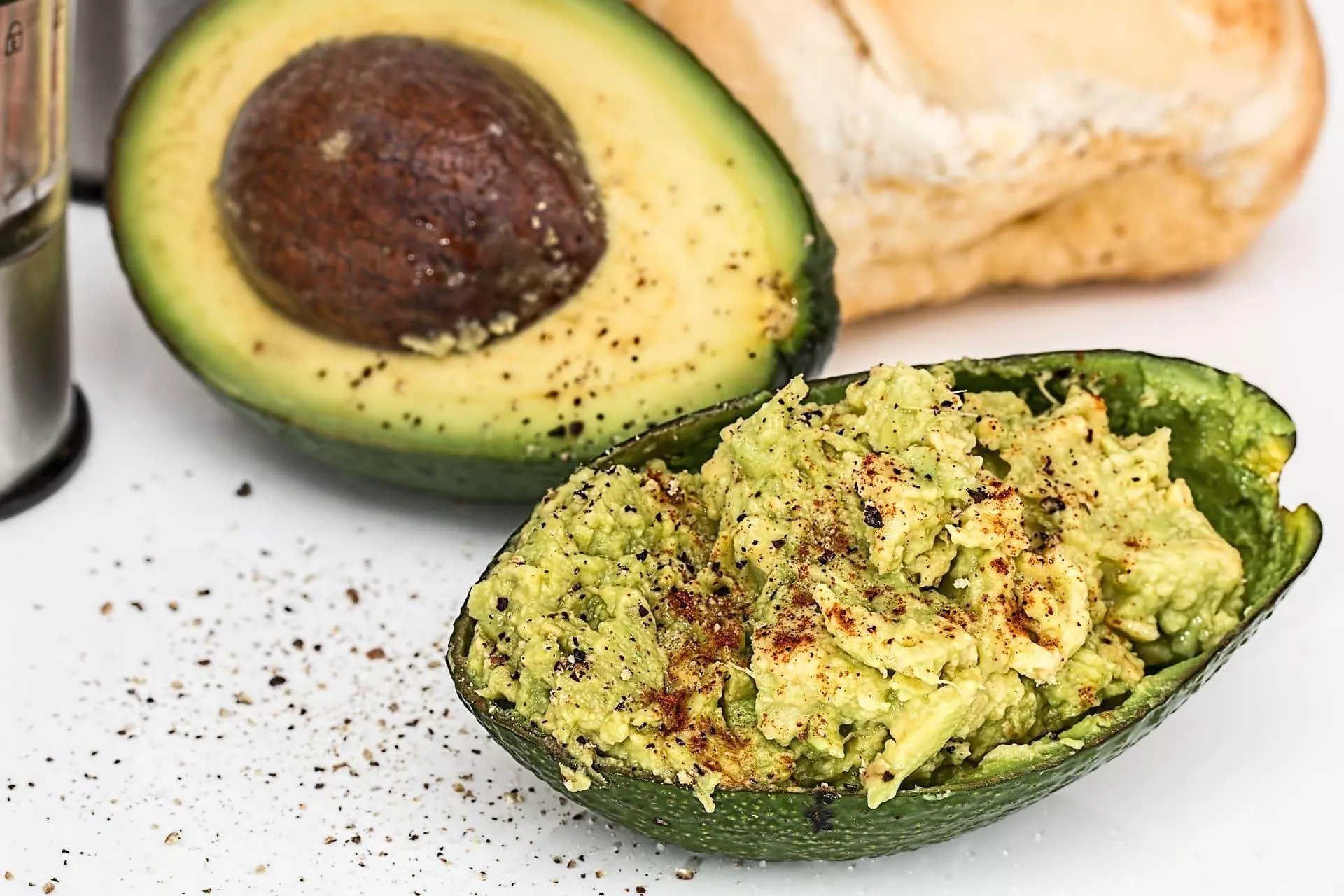
It would seem logical that cutting out fat from your diet would lead to fat loss. After all, fat is the most calorie-dense macronutrient.
However, studies show that low-fat diets aren’t more successful than other types of diets for weight loss. Studies also show that a low-fat diet has no effect on heart disease, breast cancer, colorectal cancer, or weight.
Your body needs healthy fats to function properly. They are useful for building your cell membranes, absorbing nutrients from your food, hormone production, etc.
Of course, if you overeat fats, your body will store the extra energy as fat. But the same thing will happen with any food: fats aren’t the problem— overeating is.
5. All calories are equal
All calories have the same energy content. 50 calories of broccoli or 50 calories of chocolate contain the same amount of energy.
However, they do not all have the same effect on your body. Depending on where your calories come from, they are going to be processed through different biochemical pathways, and won’t give you the same energy content.
Furthermore, high-quality calories contain good nutrients, vitamins, and minerals.
Eating a 100 calorie banana will have greater benefits than eating a 100 calorie cookie. It will also fill you up longer, making you eat less long term.
Protein, for example, is the most filling macronutrient. Eating foods with higher satiety indexes will have an impact on your energy balance long term, even if they contain the same amount of calories as a donut.
So different foods will have different effects: even if the calories are equal.
6. The low-fat/sugar-free/gluten-free option is healthier
It’s commonly believed that low-fat foods are healthy and will aid weight-loss. Actually, these foods are loaded with sugar to compensate for their lack of fat, which makes the food palatable. They are also highly processed to make up for the taste with emulsifiers, stabilizers, salt…additives that aren’t healthy at all.
The same goes for sugar-free foods, which are actually loaded with potentially harmful artificial sweeteners. Diet soda is an example of this: check out this article to learn its dangers.
Finally, the same principle applies to gluten-free foods. Many people wrongly think that the calories don’t matter as much if you’re getting the gluten-free version.
Unless you suffer from celiac disease, gluten sensitivity, or a wheat allergy, consuming gluten-free products is pointless at best and unhealthy at worst. Contrary to popular belief, gluten-free foods do not result in weight-loss.
Gluten-free foods also contain more fat and sugar than those containing gluten.
If you’re going to have a treat, get the real version, not the “diet” one.
7. Exercising will compensate for unhealthy eating

A lot of people think that exercise is as important—if not more—as healthy eating for weight loss. However, your focus should actually be 80% on your diet and 20% on exercise. Studies show that exercise just isn’t a crucial component for weight loss.
It’s also much easier to over-indulge when you think that you can burn it off later at the gym. While exercise certainly can contribute to creating a calorie deficit, it shouldn’t be your only path to weight loss.
Exercise has incredible health benefits, however— so please maintain it in your schedule! Check out this article to learn more about the impact of exercise on weight loss and nutrition.
Debunking weight loss myths in conclusion
You may have heard these weight loss myths and believed them to be true. They might even have hindered your weight loss progress.
In general, know that there aren’t any tricks or hacks to lose weight. The best thing you can do is to choose nutritious, whole-foods, eat mindfully, care for your body, exercise regularly, and build a healthy relationship with food.
-Lucie
If you’re interested in nutrition, its impact on our health, and the science behind it, you should definitely read How Not to Die. In this book, Doctor Michael Greger, founder of Nutrition Facts, examines the top causes of death in America and explains how your diet can prevent— and in some cases even reverse— them. His advice is all backed by science and he writes in a very clear and entertaining way. This book isn’t a list of what you already know. It will teach you the keys to living a long healthy life, in a simple and practical way, and without spending fortunes on supplements and pills!
PLUS if you want to take it a step further, you can check out the How Not to Die Cookbook to implement the advice easily!

Welcome!
I'm Lucie, the nutritionist behind Edukale! If you'd like to learn more about me, click HERE !
Read More!
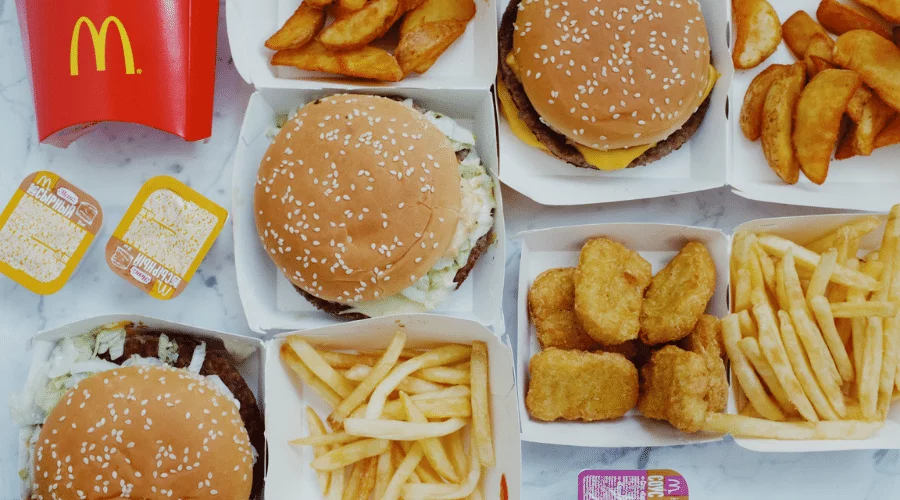
The truth about processed foods
You’ve probably heard that it’s best to reduce your intake of “processed foods” for healthy eating, and increase your intake of whole foods for optimal health.

The Best Foods to Fight Fatigue
Do you feel like you’re always tired and that you need multiple coffees to get you through the day?
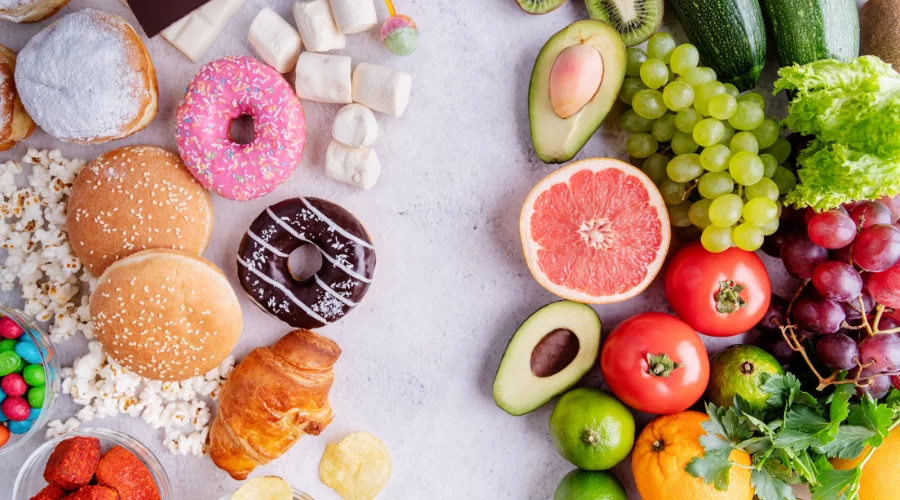
how to find the balance between healthy eating and dieting
It can be hard to find the right balance between healthy eating and dieting without becoming obsessed with food.
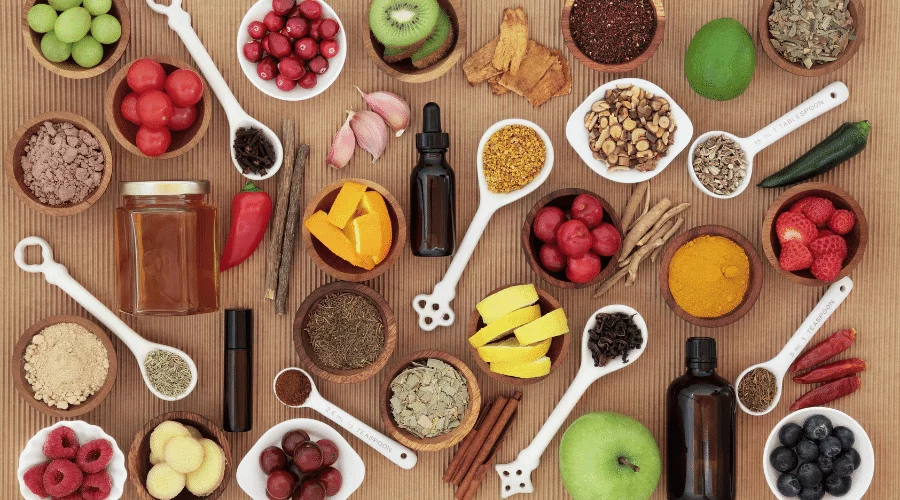
Can you use food as medicine?
“Let food be thy medicine, and let medicine be thy food.” We’re all familiar with this quote attributed to Hippocrates, and we all know the huge impact our food choices have on our health.
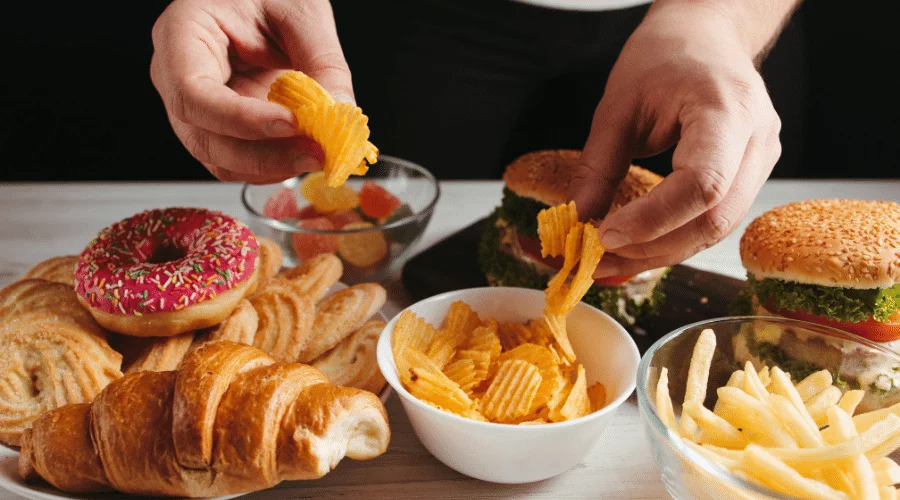
How to finally stop overeating for good!
Overeating means eating past your body’s actual needs, and it can be rather uncomfortable.
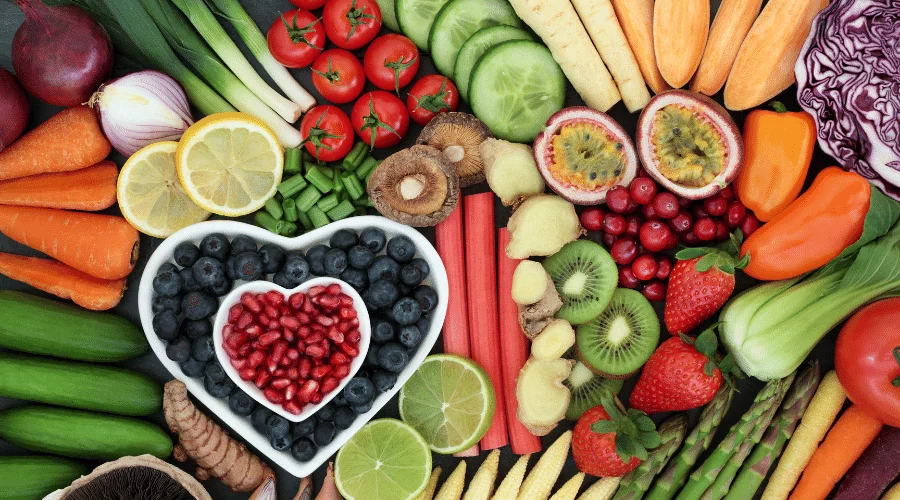
The anti-inflammatory diet: get rid of inflammation
You’ve certainly heard about the anti-inflammatory diet before and the benefits it could have on your body.
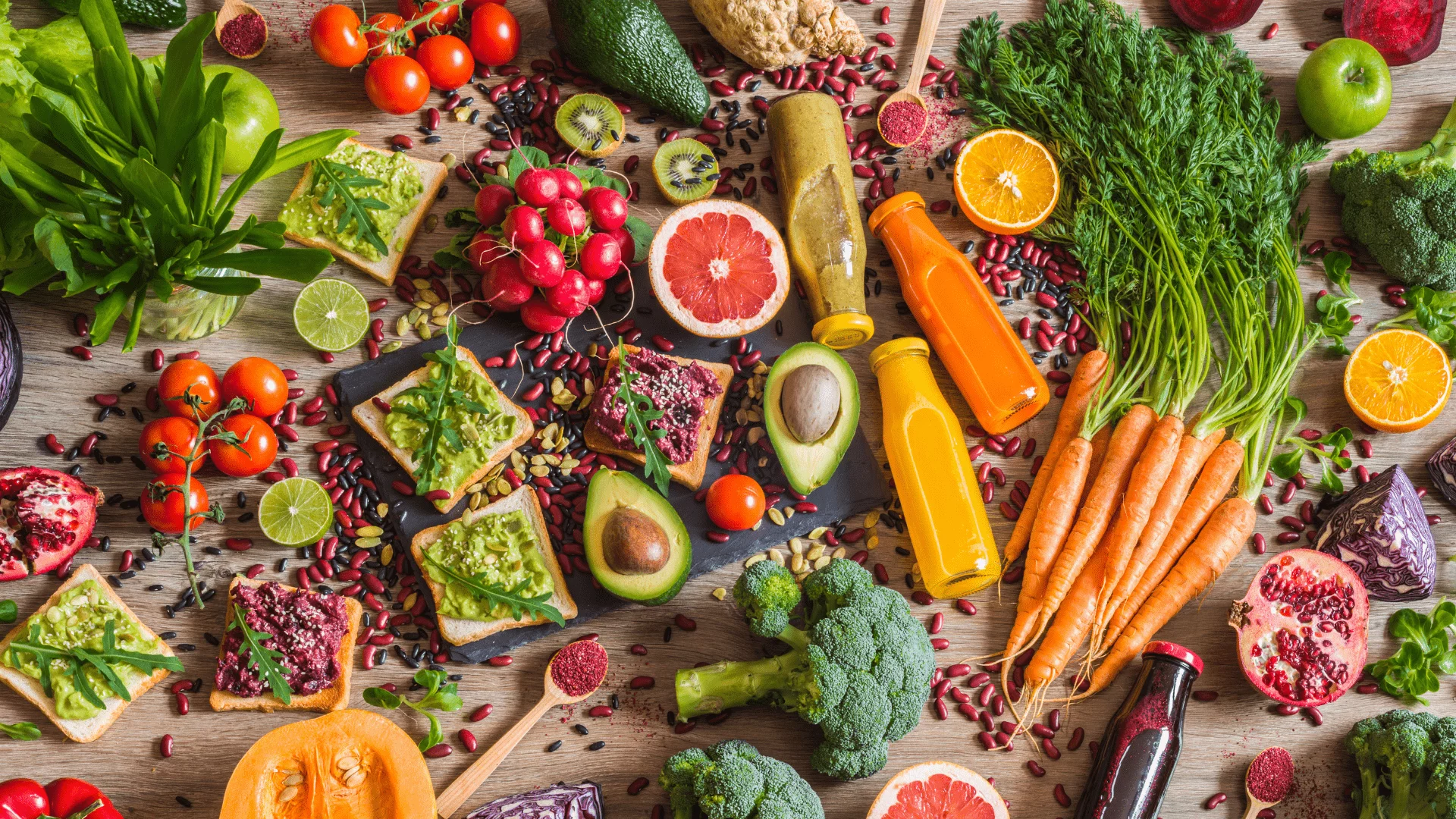
The complete beginner’s guide to veganism
Even though you can absolutely be healthy on a diet that includes animal products, the scientific consensus shows that increasing your consumption of plant-based foods is what is best for health.
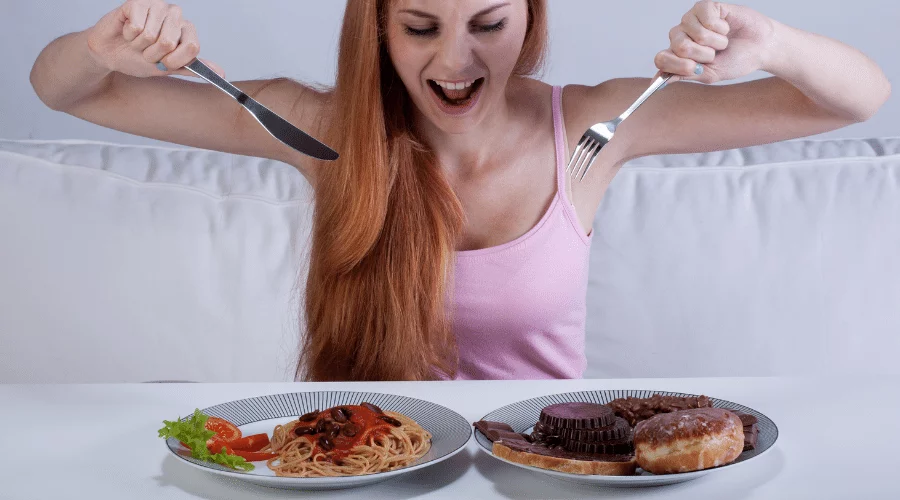
Physical vs emotional hunger—learn the difference
You may be aware that physical hunger is not the only type of hunger that exists. There are actually two main types of hunger: physical hunger and emotional hunger



Comments are closed.